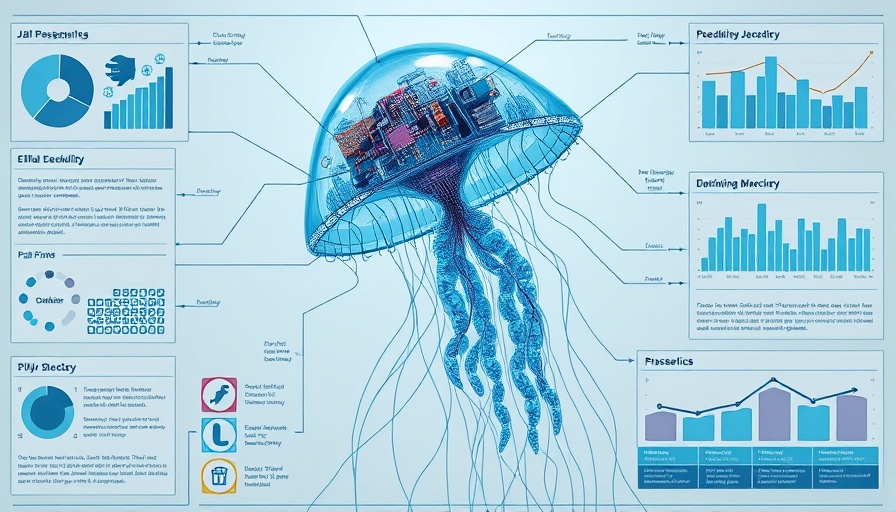
Unlocking the Secrets of the Ocean with Jellyfish Cyborgs
Recent advancements in robotics and artificial intelligence (AI) have brought forth unprecedented possibilities in ocean exploration. Tohoku University researchers are diving into these innovations by harnessing the unique locomotion of jellyfish, creating self-powered jellyfish cyborgs that could significantly impact environmental monitoring and conservation efforts.
Understanding Jellyfish: Nature's Efficient Swimmers
Jellyfish are fascinating creatures that manage to traverse vast distances through water with incredible energy efficiency. Unlike traditional marine animals, they lack bones and instead have a simple nerve net, which allows them to use their soft bodies to create a jet propulsion system for movement. This natural style of propulsion is referred to as "embodied intelligence," highlighting how their physical form contributes to their exploration capabilities.
The Research Behind Jellyfish Cyborgs
Led by associate professor Dai Owaki from Tohoku University, the team experimented with modulating jellyfish swimming behavior using gentle electric pulses. By placing miniature electrodes on their muscle rings and emitting timed electric signals, researchers could influence the jellyfish’s swimming speed—for the first time enhancing their natural movements without compromising their well-being.
This emerging technology could provide solutions for monitoring coral reefs, tracking oil spills, and keeping a close watch on climate change effects in remote oceanic regions. As humans continue to impact marine ecosystems, such innovative methods will become pivotal in their protection and conservation.
AI’s Role in Jellyfish Navigation
Coupling the jellyfish's natural abilities with AI marks a remarkable intersection of biology and technology. The researchers developed a lightweight AI model that predicts the jellyfish's swimming movements, enhancing the effectiveness of monitoring systems. This hybrid approach allows for energy-efficient oceanic probes, tailored to function without hefty environmental footprints.
Future Applications: A Sustainable Approach to Ocean Research
As the world grapples with climate change and its consequences, utilizing self-powered jellyfish cyborgs represents a potential game-changer for environmental research. By bypassing traditional power-hungry tools, this new methodology not only seeks to gather vital data but also aims to do so responsibly and sustainably.
Rethinking Marine Exploration
This pioneering study invites critical discussions about the role of emerging technologies in marine biology. With machine learning and AI entering the realm of ecological exploitation, there is a pressing need to consider ethical implications alongside technological advancements. Understanding how our innovations impact the very ecosystems we aim to protect is imperative.
Conclusion: The Future of Ocean Research Awaits
The implications of these developments extend far beyond jellyfish cyborgs. As we stand at the crossroads of technology and environment, it is essential for tech enthusiasts and environmental advocates to champion responsible innovation. The potential for jellyfish cyborgs to enhance our understanding of ocean health while minimizing human impact highlights the importance of integrating technology within marine research methods.
 Add Row
Add Row  Add
Add 




Write A Comment